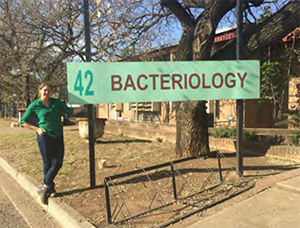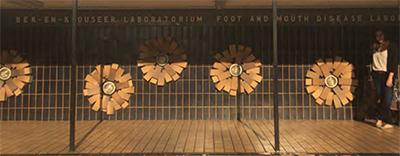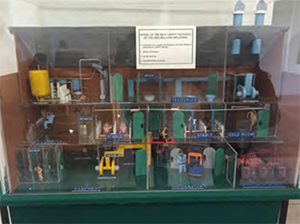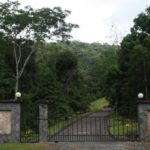Ondonsterpoort Animal Research Center Externship
 The staff of Ondonsterpoort Veterinary Institute were wonderful hosts and provided us with a diverse and comprehensive view of diagnosis and management of disease. They also provided us housing on the beautiful campus!
The staff of Ondonsterpoort Veterinary Institute were wonderful hosts and provided us with a diverse and comprehensive view of diagnosis and management of disease. They also provided us housing on the beautiful campus!
We spent the first week with in the Tuberculosis Lab. The lab functions mainly as a diagnostic laboratory for South Africa as well as many other neighboring African countries; they preform post mortem tests as well as screening tests for movement of animals especially Cape Buffalo. In addition to standard culture with microscopic identification, they preform PCR in order to identify the species of TB isolated (M. bovis, M. tuberculosis, M. bovis BCG, M. microti, M. canettii, M. pinnipedi, M. africum, M. caprae, M. mungi, and M. sucricattae). They start with a screening PCR for the most common isolate M. bovis and then have three other PCR tests to differentiate the others.
The research component of the laboratory focuses on the epidemiology of TB on the African continent. They will take each sample and identify the strain of TB within the species in order to better understand the transmission of TB between the different species of wildlife and domestic livestock.
On our free weekend, we went to Dinokeng Game Reserve on the suggestion of our hosts. There we were able to see some of the wildlife species whose samples we were processing at the laboratory such as impala, nyala, Cape buffalo, warthog, and white rhino. We were also able to speak to locals who deal with the implications of the livestock/wildlife interface every day. Johan, who is a microlight pilot on the reserve, struggles with abortions in his goat herd likely due to their contact with wild game on the reserve who harbor diseases such as Q Fever and Brucellosis.
 The second week, we spent in the Transboundary Disease Laboratories. This facility houses mainly the African Swine Fever (ASF) and Foot and Mouth Disease (FMD) diagnostic and research laboratories. We participated in the diagnostic component which consists of mainly serology, PCR, and virus isolation. There was an ASF outbreak currently going on in the Free State of South Africa during our stay and as the OIE reference laboratory for ASF, the lab was currently receiving all samples for confirmation.
The second week, we spent in the Transboundary Disease Laboratories. This facility houses mainly the African Swine Fever (ASF) and Foot and Mouth Disease (FMD) diagnostic and research laboratories. We participated in the diagnostic component which consists of mainly serology, PCR, and virus isolation. There was an ASF outbreak currently going on in the Free State of South Africa during our stay and as the OIE reference laboratory for ASF, the lab was currently receiving all samples for confirmation.
 This is a BSL 3 laboratory with a shower out policy so we gained experience with measures used to maintain biosecurity when working with these highly virulent pathogens. During our stay, there was also a Rift Valley Fever vaccine challenge going on. Sadly, because we are not previously exposed or vaccinated, we were unable to participate in any of the handson animal work.
This is a BSL 3 laboratory with a shower out policy so we gained experience with measures used to maintain biosecurity when working with these highly virulent pathogens. During our stay, there was also a Rift Valley Fever vaccine challenge going on. Sadly, because we are not previously exposed or vaccinated, we were unable to participate in any of the handson animal work.

